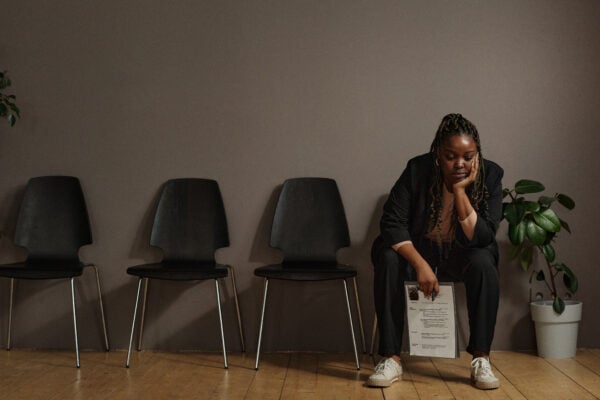More than 300,000 Black women have lost jobs this year, yet there is hardly any outcry.
The U.S. Bureau of Labor and Statistics shared an update of employment rates across demographics. Black unemployment is up overall and Black women are lagging significantly behind their counterparts.
Many factors contributed to their sudden disappearance from the workforce. Black women make up about 6% of the total U.S. population, but about 12% of federal workers. An estimated 28% of the jobs cut at the Department of Education were jobs held by Black women.
Add to that the number of Black women who were leading DEI work that is no longer required or supported, and you end up with a mix of highly educated and experienced leaders who are no longer in the workforce.
Some argue that the positions these Black women held were unnecessary, especially within certain federal agencies that the Department of Government Efficiency (DOGE) recommended for elimination or downsizing. Whether or not those positions and agencies were wasteful remains to be seen.
In any case, federal jobs were once a sure-fire strategy for entering or maintaining middle-class status. With competitive pay and benefits, these jobs secured fair wages for many Black households.
In that regard, Black women are more likely to be the head of household than women of other races. Philanthropically, they also give at higher rates than other demographics. Put all this together, and you paint a picture of families and communities that depend on Black women’s salaries to survive and thrive.
Further, Black women are often at the forefront of movements for advancing equal rights. Look no further than Fannie Lou Hamer, Sojourner Truth, and Marsha P. Johnson; the list goes on.
So, why aren’t more people speaking out on their behalf?

Some refer to Black women as the canaries in the coal mine. As one of this country’s most vulnerable demographics, how Black women are faring may foretell the futures of others as policies and political strategies continue to unfold.
In recent years, Black women rose up as the most educated demographic, earning degrees at a record pace. Many Black women, while earning those degrees or advancing within their industries, also started businesses, creating additional streams of income. The promise was that the educational advancement would lead to stability, or at least recognition of their value in their respective fields.
Instead, many Black women were met with a shocking instability that could likely affect the Black community as a whole.
Where is the upheaval for this many Black women being dismissed from the workforce in such large numbers? While Black women have been forced out, employment for other demographics has risen.
We have to ask whether this shift in employment rates was by design, as this demographic was on the decline and others were on the rise.
Among Black women, the goal was to be seen as a viable candidate for employment or advancement. We wanted to be recognized for our contributions and work ethic, not to take anyone else’s position but to have a fair shot at achieving our own.
Lately, Black women’s workplace concerns have been couched in conversations around “imposter syndrome.” That sneaking feeling that we didn’t belong in a particular work setting persisted, but we were told we needed to build our self-confidence.
This seems to starkly contrast the facts and figures before us. Because as soon as the mandates to ensure various races and ethnicities were considered for employment, Black women led the way in being excluded from the room. This is not the leadership opportunity we were seeking.
There have been generations of Black women who marched and ministered and sacrificed, who funded entire movements and whose loud cries changed policies for the betterment of the entire nation. And let’s be clear, policies that helped Black women usually helped everyone else – sometimes even more than they helped Black women.
Now that more than 300,000 Black women are out of a job, who will advocate for our ability to make a living and care for ourselves and our loved ones? Who will stand with and for Black women?
Contact Editor-in-Chief Camike Jones at 317-762-7850 or camikej@indyrecorder.com.
Camike Jones is the Editor-in-Chief of the Indianapolis Recorder. Born and raised in Indianapolis, Jones has a lifelong commitment to advocacy and telling stories that represent the community.








